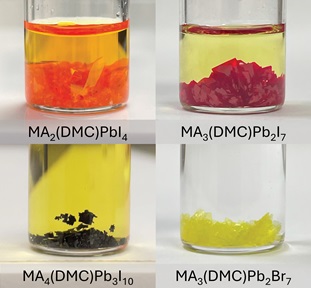Surfers of the machine revolution: Prof An Bo
Prof An Bo's research interests include game theory in AI and deep reinforcement learning.

AI systems have the potential to help law enforcement agencies quickly assign police officers to multiple crime scenes in an area and plan the most efficient routes.
Research led by Prof An Bo from NTU’s School of Computer Science and Engineering aims to build these types of systems among other security settings using game theory.
To this end, the principal investigator at the Singtel Cognitive and Artificial Intelligence Lab in NTU and his team have created algorithms that help patrolling police officers optimise their security plans.
“Security is recognised as a worldwide grand challenge. Game theory is an increasingly important paradigm for reasoning about complex security resource allocation and scheduling problems,” says Prof An, who is also the President’s Chair in Computer Science and Engineering, and Co-Director of NTU’s Artificial Intelligence Research Institute.
His research has aided agencies like the United States Coast Guard optimise patrolling routes at sea to deter pirates and terrorists from attacking ships. It has also assisted wildlife organisations in Malaysia determine the best routes for patrollers to find poachers’ animal traps and discourage poaching.
In the course of his work, Prof An has made AI models more robust by factoring in unpredictable actions the parties studied might take. He also addresses scalability problems the models face with large-scale operations by reducing the time AI takes to generate plans.
Prof An is interested in researching deep reinforcement learning, which uses neural networks that mimic the brain to train AI models to learn independently through trial and error, and by rewarding desired behaviours.
Work in this area includes combatting e-commerce fraud with AI that thwarts fraudsters’ attempts to trick detection systems and hide bogus online shopping listings.
More recently, his team is looking into ways to use deep reinforcement learning to help financial institutions generate more efficient trading strategies, as well as test and find risks in these strategies using simulations of financial markets.
“Governments could also use such tools to predict what might happen in financial markets for regulatory and policy purposes,” says Prof An.
For his fundamental contributions to game theory in security applications, Prof An was recognised by IEEE Intelligent Systems in 2018 as one of the academic journal’s “AI’s 10 to Watch”.
In 2021, he was elected a Distinguished Member of the Association of Computing Machinery in the United States for his outstanding scientific contributions to computing.
The article appeared first in NTU's research & innovation magazine Pushing Frontiers (issue #22, August 2023).



.tmb-listing.jpg?Culture=en&sfvrsn=29c7e020_1)
.tmb-listing.jpg?Culture=en&sfvrsn=55153609_1)


